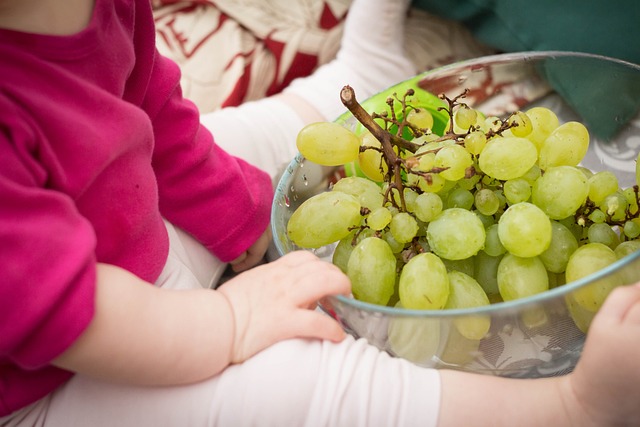Self-feeding babies are attracting more and more young parents. Gone are the days of the “airplane spoon” and other tricks to finish the plate. As soon as they feel that their child is ready, they suggest that they learn to eat differently. The idea is to replace purées and other smooth foods with pieces, which the baby will take to his mouth on his own, without anyone’s help. This mode of feeding is called DME or child-led food diversification.
Benefits
The DME approach was promoted in 2002 by an English nurse, Gill Rapley. After conducting research on nutrition, she understood the value of this self-directed learning. It is found in many cultures but it is less known in France. This benevolent and respectful approach to the child is recognized by pediatricians in Anglo-Saxon countries and in Canada. It is even part of their dietary recommendations because it has multiple benefits:
- The baby explores freely, with his senses, the different textures, and colors of food.
- No food is automatically put in the baby’s mouth, we do not wipe his mouth or his hands during meals so that he remains fully focused on what he is doing. Result: babies eat with more enthusiasm!
- The baby must chew his food and saliva can therefore play its role in predigestion. Digestion is better, stomach aches are avoided.
- The baby’s meal is very similar to that of the older ones, the meals are taken together. Seeing his parents feast, by mimicry the little child feasts too! Be careful, however, not to add salt or sugar to the foods intended for it.
The inconvenience
French pediatricians, little informed on the subject, are often quite reluctant to the EMR. Here are some disadvantages:
- The slowness of the baby’s meals, which must be allowed to eat at his own pace. We must therefore plan to spend a little more time at the table…
- The clumsiness of the young eater: by touching, palpating, and crushing his food before bringing it to his mouth, he necessarily puts it everywhere. Better to provide a waterproof and washable mat under the high chair and a good wash once the feast is over.
- The wrong roads. They are often benign because a baby coughs to expel a piece that is too big. They may sometimes require the help of a parent trained in the Heimlich technique, a gesture that we must all know and know how to practice.
What to give him, how often?
For the first trials, it is recommended to give the baby food of a good size so that it is easy to take with a whole hand (steamed carrot, banana pieces). Later, when he knows how to take small things between his thumb and index finger, the size of the food can be reduced (fresh peas steamed, grated cheese). Avoid putting butter or any other fatty substance on food so that it does not slip from your fingers. Hard, round, sticky foods should be avoided. Indeed, a baby will not shred food but just chew it by pressing his tongue on his palate and this type of food would be too difficult to eat. The baby is of course under the constant supervision of his parent.
Will he be satisfied?
Adopting the DME requires trusting your baby. He must identify whether or not he has eaten enough. It is not easy! However, as DME often goes hand in hand with breastfeeding, the two complement each other… You also have to be careful not to distract the baby. He will thus remain well-concentrated on what he eats. The advice of a pediatrician will make it possible to take stock of the foods to be favored to avoid any deficiency.
And for later
A baby who shares the family meal usually eats the same foods that other family members eat. This variety of food smells, and tastes, discovered without being imposed, will have a positive impact on a child’s diet. Indeed, if every baby enjoyed his parents’ cooking, based on unprocessed foods, less seasoned than industrial foods, he will have less inclination for the latter as he grows up. A famous boost to stay healthy!



Leave a Reply